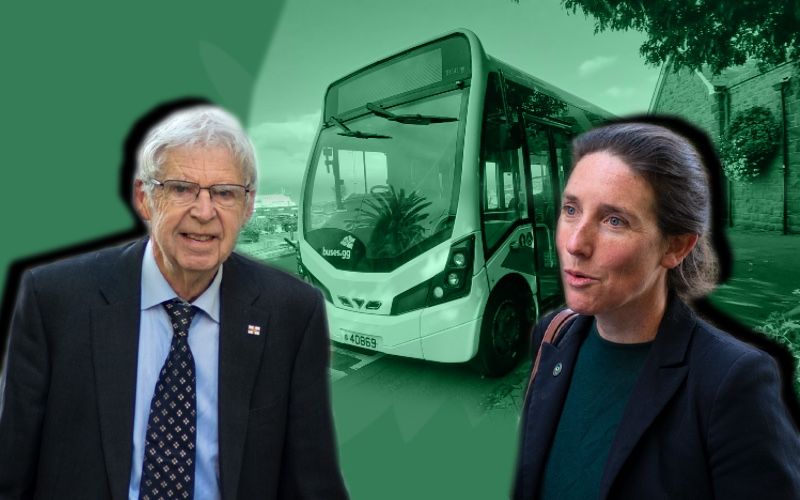


Trying to draw comparisons between the local and UK bus services is not useful warned the E&I President, as she faced questions about the service this week.
Deputy Lindsey de Sausmarez was put on the spot during this week's States meeting over the cost of a bus trip here, how much it’s worth compared to similar jurisdictions, and how much each journey contributes to the service's finances which are subsidised by the States.
It was announced a few days ago that the fares might be increasing from 1 January, with it suggested that a standard fare should go up to £1.60 (6.7% increase), with an increase of 15p per trip suggested for Puffin Pass holders, meaning that fare would sit at £1.15 per journey (15% increase).
Bus services are subsidised by around £2.90 per fare.
Deputy John Gollop asked the President of the Committee for the Environment and Infrastructure about how that subsidy compares to UK equivalents.
“Comparable data from England show that public funding accounts for 44% of all bus industry income," he said. "Now, with the rest coming from fares, and that's 56% of the income from fares, compared with our 23% that's just been given. So this suggests that fares here are less expensive and comparatively cheap, is this fact under consideration?”
E&I President, Deputy De Sausmarez offered facts and figures in response, as well as her reasoning for the difference in these number.
“So for 2023, £1,385,629 pounds of income was obtained from passenger fares, and this equates to 23% of the total annual costs,” she explained.
“The committee is very well aware that there is a very, very significant difference between the UK and here. The budget that was just recently debated six weeks ago is putting a significant increase into investment in public transport, because it needs to increase the level of service.
“We have got a better level of service, but we need one," she said.
"The economic dynamics are totally different. For example, we don't charge for parking here, so our bus service has to compete with free parking. It's a very, very different dynamic, but at the end of the day, a bus service is an absolutely essential public service that connects people with work, with education, with healthcare, with leisure activities, and it's important that we adequately fund them.”
Pictured: 23% of the bus services annual costs are covered by fare funding, with the Taxpayer picking up the rest of the tab.
Satisfaction of bus service users was also brought up during the debate - with Deputy de Sausmarez saying roadworks have an effect on that.
“Currently, the average number of services arriving on time is 81.5% and the main reason, of course, for any late arrivals is the sheer number of diversions, which I think we can all appreciate," she said. "This is something that I've answered questions on before, and it relates to the amount of investment in our infrastructure, in terms of our electricity grid upgrades, in terms of the fibre rollout, we've got a huge amount of water grid network upgrades.
“So we've got a lot of reasons why the roads are up at the moment, and that is having an impact on our bus punctuality. In terms of customer satisfaction, there were 24 complaints and 18 compliments over the period between January and the end of September, and 99.9% of the bus timetable was operated.”
Deputy de Sausmarez was keen to get her message across, that the bus service provides many social benefits, such as free travel for students and elderly residents, and can help alleviate traffic congestion.
Referring back to subsidised services, and in particular those for Guernsey’s youngest and oldest bus users, she said it has wider benefits for everyone.
“Were that not the case, I think we would see a very significant increase in congestion around our schools," she explained.
“So that's another key difference, and when comparing us with other jurisdictions, we really do have a far greater density of car traffic per capita car ownership. So I do think we have to think about some of those wider impacts, but I think it's very important that we do provide access to our young people trying to access education, and also to our older people who may feel less confident driving, that we can give them that kind of independence.”
“The 2023 figures include a week, or actually over a week, of entirely free travel that we provided for the Island games, which, again, I think was a really, really worthwhile concession. There were actually over 54,000 bus journeys taken in that week. I think that provided a range of wider benefits, and showed how the bus service can really benefit the community in many different ways.”
Comments
Comments on this story express the views of the commentator only, not Bailiwick Publishing. We are unable to guarantee the accuracy of any of those comments.